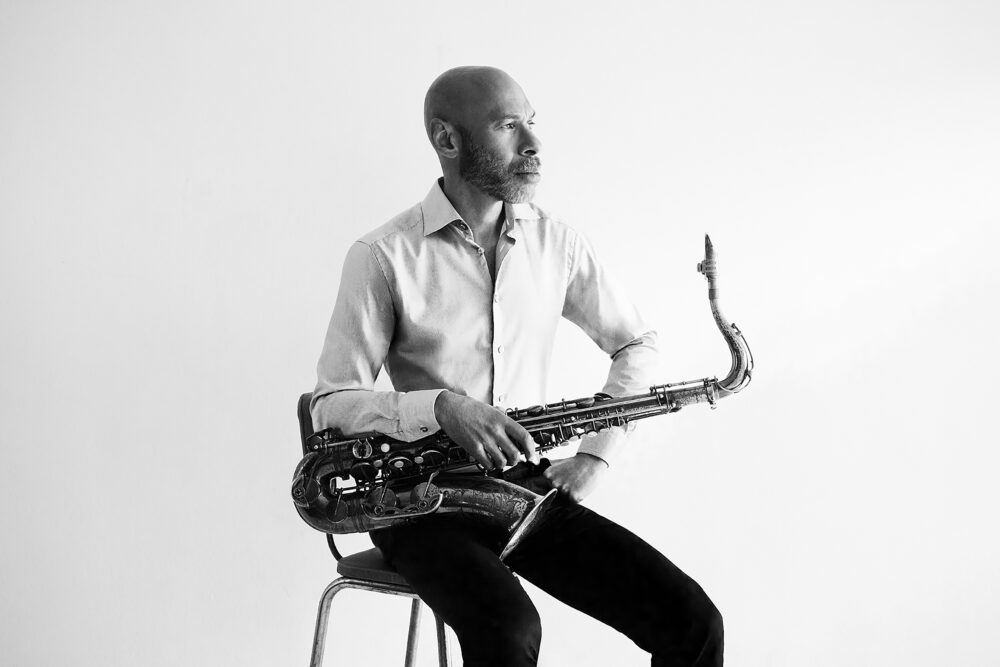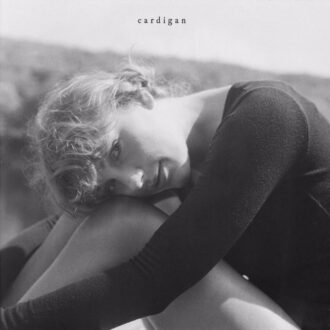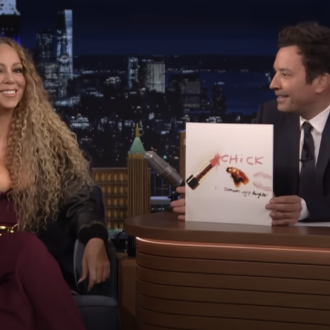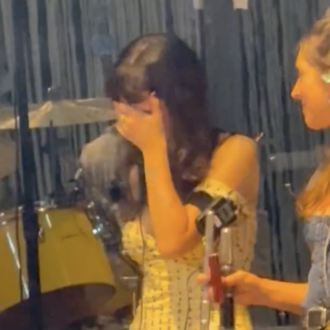Joshua Redman, Reluctant Jazz Elder

Jen Rosenstein
Saxophonist Joshua Redman has been on the jazz scene for over three decades. He made his debut on his father Dewey Redman’s 1992 album Choices and released his own self-titled album on Warner Bros. the next year.
He actually put out two albums in quick succession; Joshua Redman came out in March, and Wish — with Pat Metheny, Charlie Haden, and Billy Higgins — arrived in September. The latter album displayed extraordinary confidence, opening with a version of Ornette Coleman’s “Turnaround” and also including versions of Stevie Wonder’s “Make Sure You’re Sure,” Eric Clapton’s “Tears In Heaven,” and Charlie Parker’s “Moose The Mooche.” Redman was laying claim to bebop, the avant-garde, and pop at once, without favoring one over the others, and he’s ranged even farther afield in the years since.
Every Redman album, viewed in retrospect, is an experiment of some kind. He incorporated funk and hip-hop on Freedom In The Groove and returned to those sounds on Elastic and Momentum; interpreted rock and pop songs alongside jazz standards on Timeless Tales (For Changing Times); strung eight compositions into an album-length suite on Passage Of Time; became just one member of the band James Farm for two albums; collaborated with the avant-classical string quartet Brooklyn Rider and the piano trio the Bad Plus; and more.
In recent years, he reconvened the band from the first record I heard by him, his 1994 quartet record MoodSwing. He, pianist Brad Mehldau, bassist Christian McBride, and drummer Brian Blade made two more albums, 2020’s RoundAgain and 2022’s LongGone. They were all newcomers together, and a quarter century later, they returned as all-stars.
“I think we’ll play together again,” he told me recently. “I mean, I feel like we started talking about it for 15 years before we actually did it, and then we did it, and then the pandemic happened… our first record came out in 2020, the reunion record, RoundAgain, and we were supposed to do a huge tour then and the pandemic shut that down and then each each year… I feel like we didn’t do as much as I would have liked to have.” He says, “I was touched, I was honored, I was humbled by how excited audiences seemed to be to to hear us again, and I mean, when we first played together, it wasn’t a long stretch of time, it was really a year and some change, maybe a year and a half, but I knew at the time how special each of those musicians was individually and also that we had something special as a quartet, as a collective.”
Redman has recently signed with Blue Note, after spending virtually his entire career under the Warner Bros. umbrella, first on their jazz imprint and later on Nonesuch. His label debut, 2024’s Where Are We, was also his first album with a vocalist, Gabrielle Cavassa, and his first on which he didn’t write any of the music. All the songs were named after places (“Alabama,” “Do You Know What It Means To Miss New Orleans?”, “Streets Of Philadelphia,” “By The Time I Get To Phoenix”) except for an album-closing version of the standard “Where Are You?” The band varied from track to track but was absolutely stacked, including trumpeter Nicholas Payton, pianist Aaron Parks, guitarists Peter Bernstein and Kurt Rosenwinkel, Joel Ross on vibes, Joe Sanders on bass, and Blade on drums. Naturally, this wasn’t a unit that could stay together for long on the road, and while Parks, Sanders, and Blade did accompany Redman and Cavassa for a few dates, eventually he had to form a new touring band.
The group he assembled — pianist Paul Cornish, bassist Philip Norris, and drummer Nazir Ebo — is also the group heard on his latest album, Words Fall Short. He seems to have put them through their paces on the road, and they toured hard behind Where Are We. They even came to northwest Montana, where I live, and nobody comes here.
They were focusing on the music from Where Are We, especially since Cavassa was with them, but Redman decided to shake up the set list, particularly once they hit Europe, by adding new songs that represented cities they were playing. “I was a lot of times pulling together arrangements of different songs, sometimes on the plane, and we would run through them at sound check and then play them once on the gig for that city and maybe never again.”
This allowed him to get a sense of the band’s skills and adaptability. “I realized how sensitive these guys were. I mean, you know, they’re great young musicians with virtuosic chops and all the skill sets one could imagine, and they play with great energy and fire but also with a tremendous amount of patience and maturity and a sense of of really serving the songs.”
In September 2024, he started bringing in new compositions of his own “that hadn’t found a home yet, and the band coalesced around them very quickly. I remember one soundcheck in particular where we ran through, like, four new tunes in 20 minutes.” It was then that the decision to record an album with the new band was made, and two months later, they were in the studio. Three guests joined them: Cavassa, saxophonist Melissa Aldana, and trumpeter Skylar Tang, each of whom appears on one track.
The album is a straightforward, medium-intensity collection of acoustic jazz tunes, built around simple but memorable melodies and rhythms that don’t swing as hard as, say, a 1960s Blue Note album or a modern release on Smoke Sessions or Posi-Tone, but don’t go out of their way to wrong-foot the listener, either. “So It Goes,” a friendly but competitive blowing session with Aldana, is one of the most intense performances on the disc. Perhaps the biggest surprise is that Redman plays soprano saxophone on nearly half the album.
“It’s a very challenging instrument, you know,” he says. “I think that there’s a few just born, natural soprano players like Branford Marsalis, Wayne Shorter, Steve Lacy, Sidney Bechet… you know, these are my biggest influences and heroes on the instrument, but I just kind of had a hankering to play it again and to try it.” He describes “She Knows,” one of the three soprano features on Words Fall Short, as a “free ballad,” and reveals that he’d originally intended to record it on tenor. “I was just like, oh, maybe the first take I’ll play on soprano, because I’d been playing a lot of tenor at that at that point during the day, and we tried it and I was like, it kind of feels good. So we went with that.”
Redman is a member of a small, exclusive club: sons of legendary avant-garde saxophonists who’ve taken up their father’s instrument. And like 59-year-old Ravi Coltrane (but not Tomoki Sanders, who’s only 30), he’s now, at 56, in the process of transitioning from “young lion” to jazz elder. But it’s unclear what wisdom he might be able to offer younger players, given how different the jazz scene and the jazz business are from when he started.
“I’m old,” he says with a soft laugh. “Okay. Yeah, I’ll give you that, but do I feel like an elder in the music? Not at all.” He says his attitude towards making music, his fundamental value system and philosophy, and the way he approaches other musicians, whether younger or older than himself, is always from a perspective of equality. “I’ve never approached making music with anyone with the sense of generational difference at the forefront of my mind or really in any way coloring my experience.”
He rattles off a list of legends he played with — Elvin Jones, Jack DeJohnette, Paul Motian, McCoy Tyner, Pat Metheny, Billy Higgins, Roy Haynes — and explains that none of them went out of their way to teach him anything. “Whatever lessons they had to impart were not lessons that were given explicitly… whatever lessons they taught, they taught just through the pure act of being so available and present in the music.” Thus, he strives to maintain empathy, solidarity, and a collective spirit: “Everyone meets each other where they are and everyone plays openly and with with a sense of full equality… if I’m going to make music with other musicians, I’m going to try to say as little as possible and play as deeply and creatively and openly and collaboratively as possible.”
He does admit to some generational differences, though. “I’ll tell you, it manifests itself the most after the gig. Because when the gig is over they’re going out clubbing or whatever they’re going to do, and I’m going back to the hotel room to collapse, that’s where the difference really rears its head.”
TAKE 10
Sinsuke Fujieda Group - "Fukushima"
Sinsuke Fujieda is a saxophonist from Japan who started out playing tropical/Caribbean music before making the transition to groove-based spiritual jazz. He also makes more ambient, experimental work under the name Sound Furniture. The group heard on this record debuted in 2021 with the triple live release (two CDs and a DVD) Informel; Fukushima is their studio debut. Fujieda is backed by pianist Shinichi Tsukamoto, bassist Shigeru Kato, drummer Kensaku Ohsumi, and percussionist Daisuke Alkhaly, who lay down big, bottom-heavy grooves that will please fans of Kamasi Washington or Nubya Garcia. But what sets this group apart — aside from Fujieda’s tenor playing, which has a focused intensity reminiscent of Pharoah Sanders — is Fumiko Takeshita, who plays violin. The nearly 10-minute title track kicks off with a pounding Coltrane-ish modal piano vamp and some fiery horn, but Takeshita’s extended solo has a mournful beauty that takes the music somewhere else entirely. (From Fukushima, out now via SoFa Records.)
GoGo Penguin - "Fallowfield Loops"
UK trio GoGo Penguin’s seventh album features multiple guests, including singer-songwriter Daudi Matsiko, violinist Rakhi Singh, and the chamber ensemble Manchester Collective, which Singh co-founded. The core trio continues down the path they’ve long established, with piano and synth melodies both anchored and propelled by snapping breakbeats and rumbling bass, but there are some intriguing sonic experiments here, like “Background Hiss Reminds Me Of Rain,” and “Luminous Giants,” with Singh and Manchester Collective, is a really nice pulsing modern classical piece with some genuinely beautiful violin, stalked by upright bass. The apparent musical and conceptual focus on GoGo Penguin’s hometown of Manchester is at the center of the video for “Fallowfield Loops,” which intercuts footage of the musicians performing the piece with flying drone shots of the city. The track itself has a skipping, lighthearted energy, the ticking drums propelling restrained but still energetic piano extrapolations. It’s nice stuff. (From Necessary Fictions, out now via XXIM.)
Joe Armon-Jones - "Another Place" (Feat. Greentea Peng & Wu-Lu)
Back in March, keyboardist and producer Joe Armon-Jones released the first volume of All The Quiet, and now the second volume has arrived. Each album features notable guests including tenor saxophonist Nubya Garcia, guitarist Oscar Jerome, and an array of vocalists including Yazmin Lacey, Greentea Peng, Goya Gumbani, and others. The music across both records is a uniquely 21st century London mix of jazz, funk, and soul, with a heavy dose of dub production techniques; instruments regularly phase in and out in waves of echo, and the melodies have plenty of breathing space. “Another Place” features guest vocals from up-and-coming R&B singer Greentea Peng, whose own 2025 album Tell Dem It’s Sunny is a thrilling, head-nodding blend of Erykah Badu, Soul II Soul, and dark-edged trip-hop; “My Neck,” from that album, conjured the spirit of Tricky’s Maxinquaye and featured MC Wu-Lu, who’s also on this track. (From All The Quiet (Part II), out now via Aquarii.)
Ben LaMar Gay - "there, inside the morning glory"
Cornet player, programmer, multi-instrumentalist, and vocalist Ben LaMar Gay has been a guest on some incredible records by Jaimie Branch, Makaya McCraven, Damon Locks, Joshua Abrams’ Natural Information Society and others, but his solo work — and this is his ninth release on International Anthem — is much stranger and more intimate than almost anything else he’s involved in. Most of the tracks on Yowzers are recorded with his core band of Will Faber on guitar, doson ngoni, bells, and vocals; Matthew Davis on tuba, piano, bells, and vocals; and Tommaso Moretti on drums, percussion, and vocals. But there are some guests, too, including Rob Frye on flute and bass clarinet and three additional vocalists (Ayanna Woods, Tramaine Parker, and Ugochi Nwaogwugwu). “there, inside the morning glory” is a strutting parade number featuring cornet and tuba up front over a ticking, hammering beat, but it takes several sharp turns in its five-minute running time. (From Yowzers, out now via International Anthem.)
Ivo Perelman & Matthew Shipp String Trio - "Pillar Of Light"
Saxophonist Ivo Perelman and pianist Matthew Shipp have been working together since the mid ’90s. They’ve released a string of duo albums, and invited numerous guests to join them in the studio for trio and quartet sessions. But this album is something special — a reunion of one of Shipp’s most intriguing ensembles. The Matthew Shipp String Trio, with viola player Mat Maneri and bassist William Parker, made two albums, By The Law Of Music and Expansion, Power, Release, in 1996 and 2000, and a third, Symbolic Reality, in 2019. Their music has always been a fascinating, suspenseful variation on so-called “chamber jazz,” combining the melodic and harmonic richness of chamber music with the exploratory spirit of avant-garde jazz. This album, which features four long tracks, combines the String Trio’s already strong collective sound with Perelman’s ability to spin beauty out of thin air, and the result is frankly glorious. (From Armageddon Flower, out now via Tao Forms.)
Theo Croker - "high vibrations (feat. Malaya & D'LEAU)"
Trumpeter Theo Croker comes from deep within the jazz tradition — his grandfather was legendary New Orleans trumpeter Doc Cheatham — but he’s one of the most forward-looking musicians the music has right now. “high vibrations” features vocalist Malaya and producer/programmer D’LEAU; the album also includes guest appearances from saxophonist Gary Bartz, vocalist Estelle, and drummer/beatmaker Kassa Overall, whom Croker’s known since they were both in college. On this track, he’s joined by keyboardist Michael King and drummer Shekwoaga Ode, both of whom were members of saxophonist Isaiah Collier’s spiritual free jazz unit the Chosen Few, but this is a pulsing, beat-driven electronic track with a smooth but impassioned vocal. The video, shot in Brazil, is a thing of beauty all on its own, with Croker shadowed and occasionallly surrounded by a quartet of dancers. The mix of live instrumentation, electronic sounds, and high-energy house music production makes this an ideal summer song. (From Dream Manifest, out now via Blue Note.)
Isaiah J. Thompson - "VIII. The Prophet"
It’s funny that the term “spiritual jazz,” which gets tossed around a lot these days, only seems to be applied to music that reminds people of non-Christian spirituality. I mean, really, what’s more “spiritual” than the music of pianist Amina Claudine Myers, or saxophonist James Brandon Lewis (who made an entire album of songs identified with Mahalia Jackson)? And of course Duke Ellington and Mary Lou Williams wrote plenty of explicitly sacred music. Well, pianist Isaiah J. Thompson is putting the Christian aspect of his music front and center on his new album, The Book Of Isaiah – Modern Jazz Ministry. The album features tenor saxophonist Julian Lee, bassist Marty Jaffe, and drummer Miguel Russell, and was co-produced by another pianist steeped in gospel, Cyrus Chestnut. “VIII. The Prophet,” which ends the album, is a stomping, ecstatic burner, with everyone involved hitting at full strength, catching the spirit and taking the listener with them. (From The Book Of Isaiah – Modern Jazz Ministry, out now via Mack Avenue.)
Theon Cross - "Affirmations"
Theon Cross is the modern tuba player, following in the tradition of out-jazz royalty like Howard Johnson, Bob Stewart, and Jose Davila. He’s best known for his tenure in Sons Of Kemet, but he’s also made several albums on his own. This live album is a document of his New York debut, fronting a band that included saxophonist Isaiah Collier, guitarist Nikos Ziarkas, and drummer James Russel Sims. The music is dubby and funky, with Cross’ tuba providing deep low end (its function in early New Orleans jazz, before the upright bass came to prominence) as well as distorted-sounding, pummeling lead lines. “Affirmations” is a tune he’s been performing live for years, but it’s never appeared on record before. This version is 14 minutes long, beginning with emotive solo guitar before Cross and the others come flowing in, providing a pulsating backdrop for a passionate, extended Collier solo. (From Affirmations – Live At Blue Note New York, out 7/11 via New Soil and Division 81.)
Brandee Younger - "BBL"
Harpist Brandee Younger’s rise has been slow but inexorable. Several years ago, I saw her play duos with a bassist, opening for legendary Afrobeat drummer Tony Allen. Now, she’s signed to Impulse! and, on her third album for the label, is playing Alice Coltrane’s harp. Her music has a populist romanticism, a comfort with electronics and up-to-the-minute production techniques, and a unique way of mixing jazz, classical, and R&B that reminds me less of Coltrane or of Dorothy Ashby (both of whose music she’s interpreted extensively) than of flutist Bobbi Humphrey, who made a string of lovely fusion-esque albums for Blue Note in the 1970s. “BBL” (which is not a reference to cosmetic surgery) has a pinging, West African quality; the overdubbed harp sounds like a mbira at times, as drummer Allan Mednard lays down a ticking rhythm and bassist Rashaan Carter, who also produced, dances gracefully around her. (From Gadabout Season, out now via Impulse.)
Mary Halvorson - "About Ghosts"
Mary Halvorson likes a working band. In the mid-2000s, she led a trio with bassist John Hébert and drummer Ches Smith that over the course of five albums expanded to a quintet, then a septet, and finally to an octet. She’s been one-third of the collaborative trio Thumbscrew with bassist Michael Formanek and drummer Tomas Fujiwara for a decade; they’ve made eight albums together to date. A couple of years ago, she turned that trio into the foundation of a new band, Code Girl, that made two albums and may still be together. And in 2022, she released Amaryllis, premiering another new group in the process: trumpeter Adam O’Farrill, trombonist Jacob Garchik, vibraphonist Patricia Brennan, bassist Nick Dunston, and Fujiwara. That group, now called Amaryllis, returned in 2024 on Cloudward, joined for one track by Laurie Anderson on violin, and now they’re back for a third go-round on About Ghosts. This time, there are two guests: alto saxophonist Immanuel Wilkins and tenor saxophonist Brian Settles. Still, it’s very much a unified ensemble with a unique voice, and her compositions reflect that.
And the eight tracks on About Ghosts are very much compositions. Not heads, not guided improvisations, though the group members have a lot of freedom in how they interpret the music. It’s complicated stuff, understandable coming from Halvorson, who studied under Anthony Braxton and performed his knotty compositions for many years. As always, she’s nestled in the center of the music rather than leading it; her guitar sits behind the horns, alongside Brennan’s vibraphone and Dunston’s bass, and she adds an extra texture here and there, overdubbing odd tones from a Pocket Piano synthesizer.
On the title piece, the horns and vibes play a unison melody, the various timbres harmonizing but also rubbing against each other, with the guitar squiggling around in the middle. When Halvorson solos, Brennan echoes her, and the horns reappear like backup singers. The music has a dreamlike, almost 1950s quality. If it was just a little bit more conventional it could almost be lounge music; as it is, it feels romantic but with a barbed edge, impossible to relax around, because you’re never sure if it’s going to lurch sideways without warning. Amaryllis is one of the most intriguing and thrilling bands in jazz right now, and Mary Halvorson’s intricate compositions are a huge part of the appeal. Trumpeter Bill Dixon’s final studio album, released in 2009, was called Tapestries For Small Orchestra; were that title not taken, it would apply perfectly to this music, which has the complexity and brilliant colors of a tapestry. (From About Ghosts, out now via Nonesuch.)



